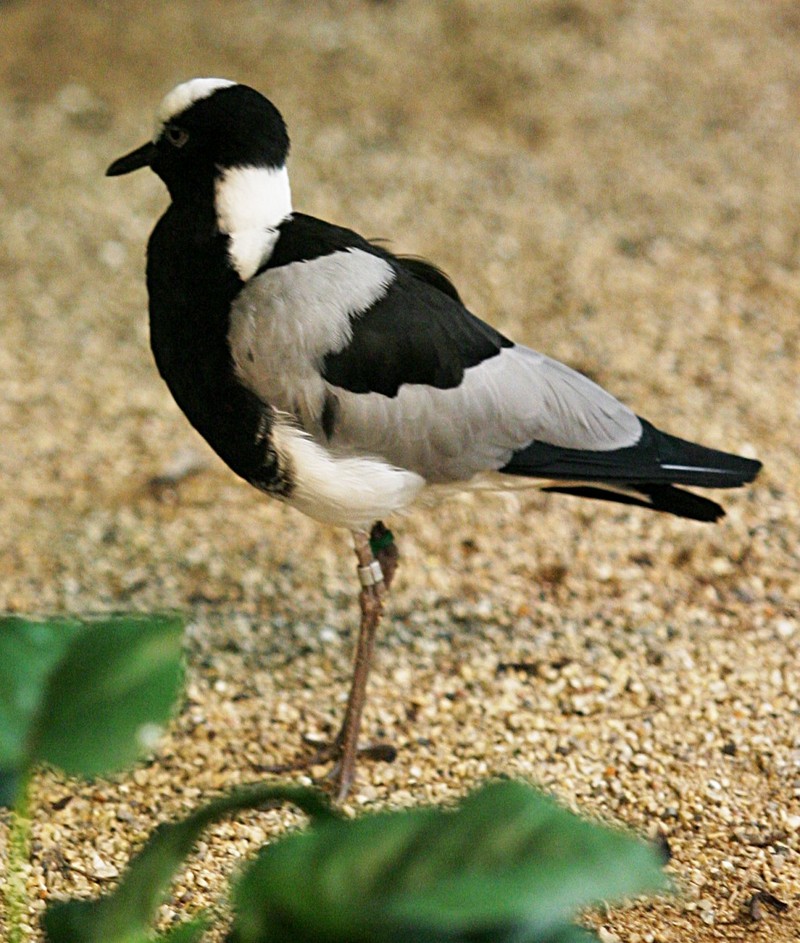|
| 질의: Vanellus armatus | 결과: 3번째/8 | |
Blacksmith Lapwing (Vanellus armatus) - Wiki
| 제목: | Blacksmith Lapwing (Vanellus armatus) - Wiki
| |

| 해상도: 1060x1250
파일크기: 348021 Bytes
등록시간: 2007:10:01 10:25:22
|
Blacksmith Lapwing
From Wikipedia, the free encyclopedia
[Photo] Blacksmith Lapwing (Vanellus armatus) at the Milwaukee County Zoological Gardens in Milwaukee, Wisconsin. Date October 6, 2006. Author http://en.wikipedia.org/wiki/User:Cburnett | Permission is granted to copy, distribute and/or modify this document under the terms of the GNU Free Documentation License, Version 1.2 or any later version published by the Free Software Foundation; with no Invariant Sections, no Front-Cover Texts, and no Back-Cover Texts. A copy of the license is included in the section entitled "GNU Free Documentation License". |
The Blacksmith Lapwing or Blacksmith Plover (Vanellus armatus) occurs commonly from Kenya through central Tanzania to southern and southwestern Africa. The vernacular name derives from the repeated metallic 'tink, tink, tink' alarm call, which suggests a blacksmith's hammer striking an anvil.
Description
Blacksmith Lapwings are very boldly patterned in black, grey and white, possibly warning colours to predators. It is one of five lapwing species (two African, one Asian and two Neotropical) that share the characteristics of a carpal (wing) spur, red eye and a bold pied plumage. The bare parts are black. Females average larger and heavier but the sexes are generally alike.
Habitat and numbers
The Blacksmith Lapwing occurs in association with wetlands of all sizes. Even very small damp areas caused by a spilling water trough can attract them. In South Africa they are most numerous in the mesic grassland region, less so in higher-rainfall grasslands. Like the Crowned Lapwing, this species may leave Zambia and Zimbabwe in years of high rainfall and return in dry years. It avoids mountains of any type.
Blacksmith Lapwings expanded their range in the 20th century into areas where dams were built and where intensive farming was practiced. Consequently they are now numerous and established in the western Cape region of South Africa, where they were absent until the 1930s. In this region they have also entered estuarine mud flats in winter where they aggressively displace other waders.
Behaviour and food
The species reacts aggressively to other lapwings or African Jacanas that may enter its wetland habitat. It breeds in spring, but its choice of nesting site and timing may be opportunistic. The young separate gradually from their parents and do not return to natal areas afterwards. They feed on aquatic and terrestrial invertebrates.
http://en.wikipedia.org/wiki/Blacksmith_Lapwing
| The text in this page is based on the copyrighted Wikipedia article shown in above URL. It is used under the GNU Free Documentation License. You may redistribute it, verbatim or modified, providing that you comply with the terms of the GFDL. |
|
^o^
동물그림창고 똑똑전화 누리집
^o^
|
|